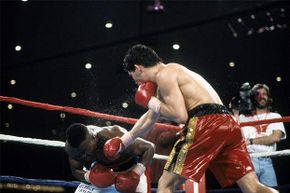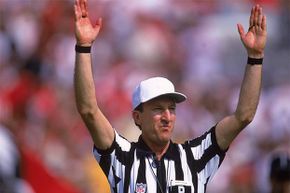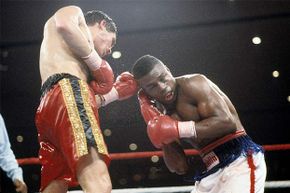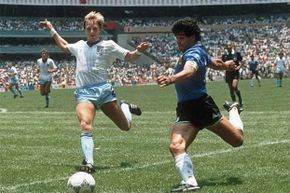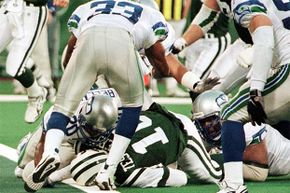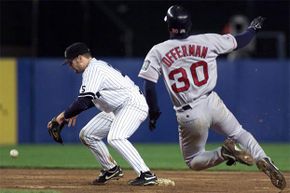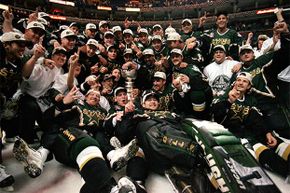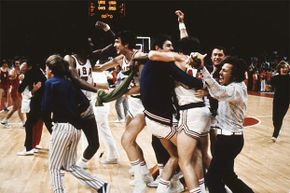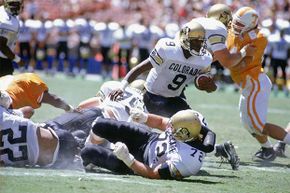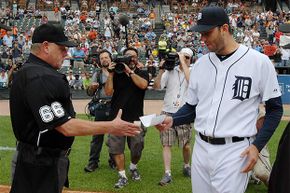"What? No! Are you kidding? Come on, ref!" Such are the tortured screams of a true sports fan. Is there anything more gut-punchingly painful than watching your team go down on a bad call? It's one thing to lose fair and square to a better opponent, but another thing entirely to get robbed by a half-blind, hometeam-loving, officially awful official.
OK, fine. Referees and umpires are human beings who make human mistakes. That's understandable. But why do they always have to make their human mistakes against our team?
Advertisement
Before you think that the world is against you, check out these 10 egregious, atrocious, heinous (wait, let me get out the thesaurus), flagrantly ridiculous blown calls. If you still feel victimized, volunteer for a season as a Little League umpire. Then you'll know what real pain is.
